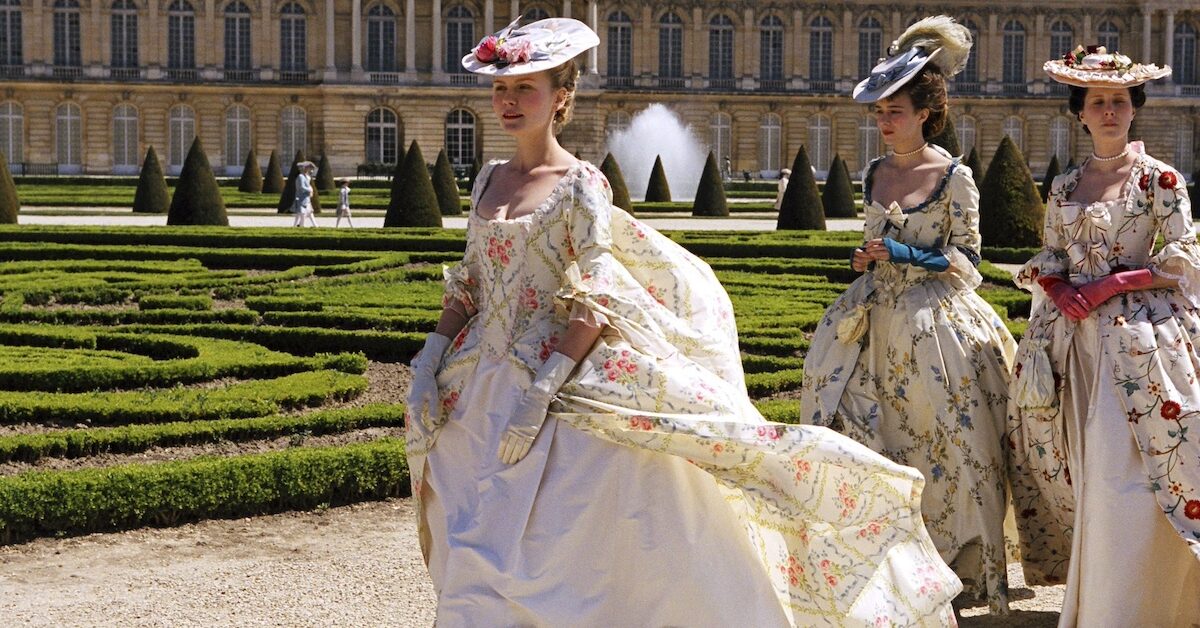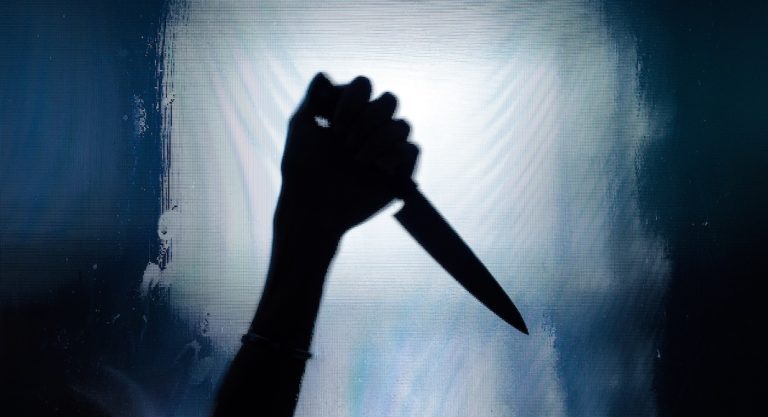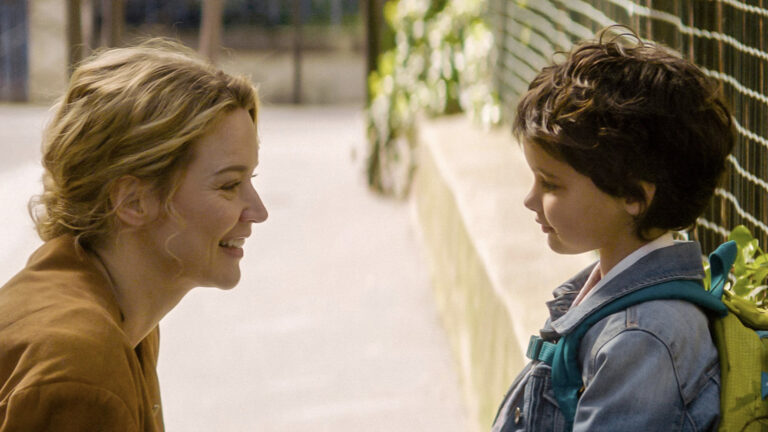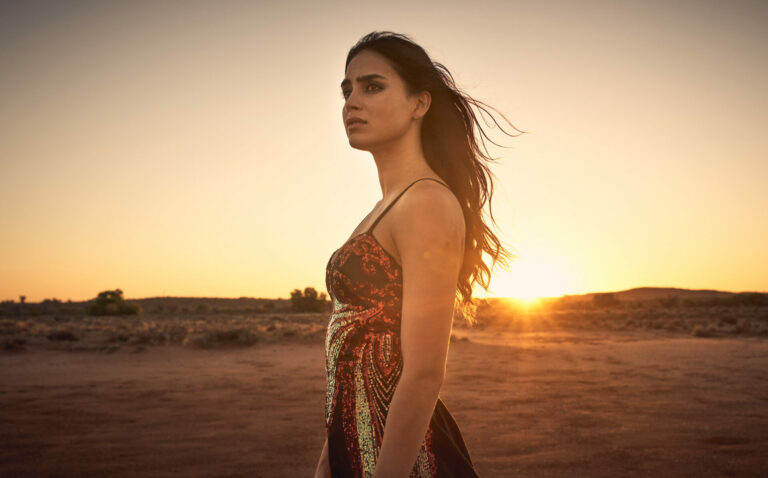Why is it that French Revolution movies are so filled with clichés? Picture them: Starving peasants begging for bread in the streets. Bare-breasted, flag-waving Liberty leading the people. Bratty Marie Antoinette announcing, “Let them eat cake.” Or was it brioche? (More likely, she never said it at all.) The guillotine striking, an aristocratic head landing in a basket.
Reality, of course, is a bit more compliqué.
In a nutshell: Spanning from 1789 to 1799, the French Revolution was a period of political, social, and economic upheaval that marked a major turning point in French history. Hungry, poor, and fed up with King Louis XVI’s economic policies, which had the country hurtling toward bankruptcy, the citizens revolted. On July 14, 1979, driven by Enlightenment ideals of liberty, equality, and fraternity, rioters stormed the Bastille fortress, arming themselves and symbolically saying a big FU to the king. And with that—and some moaning and debate—the monarchy and feudal system were abolished, and the French Republic was born. The king was found guilty of treason and executed on January 21, 1793. But it wasn’t all “Power to the people” dreams fulfilled. Political infighting led to the Reign of Terror, when thousands of suspected enemies of the revolution fell prey to the famous cry, “Off with their heads!” French politics became a years-long tug of war between moderate and extremist forces, until in 1799 young general Napoléon Bonaparte said, “Ça suffit!” and staged a coup d’état, seizing the reigns of France and essentially ending the revolution. While bloody and tumultuous, this dramatic historical period brought lasting change to France and beyond. Its legacy can be seen in modern democracy and social justice even today. Vive la révolution!
Got all that? Personally, I prefer getting my history lessons from the movies. So here are some of the best French revolution movies of all times, ranked.
The Best Movies About the French Revolution
15. One Nation, One King (2018), directed by Pierre Schoeller
This earnest, star-studded period drama covers core events from the storming of the Bastille in 1789 through the king’s execution in 1793, giving voice to both the working class and royalty, while striving hard for historical accuracy and soaring emotion. In Paris, 1789, laundress Françoise (Adèle Haenel) finds political empowerment and romance with nomadic hottie Basile (Gaspard Ulliel), as the pair gets caught up in the rallying cries of the French Revolution. As a new government is born, the fate of King Louis XVI (Laurent Lafitte) is sealed. Trying too hard to get the facts right, this movie has been called formulaic, didactic, and too often melodramatic. Even attractive cinematography, César-nominated production and costume design, and strong actors like Louis Garrel and Denis Lavant delivering passionate speeches don’t whip up the urgency and fire expected from a portrait of this chaotic and momentous time in history.
14. The French Revolution (1989), directed by Robert Enrico (Part 1) and Richard T. Heffron (Part 2)
Produced for the 200th anniversary of the French Revolution, this comprehensive six-hour, two-part movie shot in French, German, and English aims for breadth that is impossible to achieve in a two-hour film. It hits all major events from the calling of the Estates-General to the death of Robespierre. The producers aspired to tell all sides of the story without playing favorites—whether or not they succeeded, you can be the judge. Part 1, Years of Hope, focuses on the early days of the revolution, and Part 2, Years of Rage, the Terror and its aftermath. The script goes for easy comprehension, but feels at times overly simplified and didactic, a history book for kids brought to life. The impressive international all-star cast includes Jane Seymour as Marie-Antoinette, Sam Neill as Lafayette, Peter Ustinov as Mirabeau, Klaus Maria Brandauer as Danton, Claudia Cardinale as the duchess of Polignac, and François Cluzet as Desmoulins.
Stream Part 1 on YouTube. Stream Part 2 on YouTube. Rent on Amazon.
13. Napoleon (2023), directed by Ridley Scott
Ridley Scott’s (Blade Runner, Thelma and Louise, Gladiator) first film The Duelists (Best Debut Film at Cannes, 1977), starred Keith Carradine and Harvey Keitel as dueling rival French officers during the Napoleonic wars. Now Scott is back on the Napoleon beat with a much-hyped biopic that also premiered at Cannes. The film packs the short, yet towering historical figure’s entire political career into two-and-a-half hours. Most of that time sees Joaquin Phoenix—who plays Bonaparte as a petulant toddler with a very American accent—moping, throwing hissy fits, and mooning over his unfaithful wife Joséphine (Vanessa Kirby). While the battles are impressive, especially a gorgeously shot winter assault where cocky, scowling Napoléon ingeniously uses the icy waters to his advantage, French critics have called the film “lazy, pointless, boring, migraine-inducing, too short and historically inaccurate.” Maybe the $200 million budget could have instead fed the starving masses—or funded a year’s worth of great French films.
Rent or buy on Apple TV, Amazon, YouTube, Vudu, or Google Play.
12. The Scarlet Pimpernel (1934), directed by Harold Young
Based on the 1905 novel by Baroness Orczy (also adapted for stage and a 1982 remake), this goofy golden oldie focuses on Sir Percy Blakeney (Lesley Howard), an 18th century aristocrat living a double life. Blakeney secretly sails to France with a band of like-minded compatriots to free fellow rich people from Robespierre’s guillotine at the height of the French Revolution. They call him the Scarlet Pimpernel. To British and French nobles, he’s a hero and a mystery to be solved: Who is this brave fellow risking his life to swoop in dressed as a foulmouthed old hag, grab some royalists destined to lose their pretty heads, and stick it to the man? To the vengeful masses cheering the Reign of Terror, he’s Public Enemy #1. Not much mystery or political insight here, but there is adventure and fun. A new drinking game: Everyone shoot Pastis with a dash of scarlet grenadine every time Percy recites his famous Pimpernel poem: “They seek him here, they seek him there/Those frenchies seek him everywhere.”
Stream on Max.
11. La Marseillaise (1938), directed by Jean Renoir
In a romanticized version of the events leading up to the French Revolution, legendary director Jean Renoir explores the lives of ordinary people struggling for change in this French film. Made in 1938 during a similarly tumultuous political period, when the French left-wing Popular Front was winding down and Europe was teetering on the brink of war, the film paints a vast, yet intimate portrait of a country in transition. Renoir used loosely connected scenes to explore how the revolution affected different pockets of society. From the citizens of the southern seaport city of Marseilles rallying for change—and singing the marching song that would become the French national anthem—to the court of Louis XVI, this movie shows citizens from all corners of France finding their footing as political and social forces simmered to boiling, and revolutionary passions took hold.
Buy on Amazon.
10. History of the World, part I (1981), directed by Mel Brooks
While the revolution is only one chapter in Mel Brooks’ cult classic, which sends up epic historical dramas set during such periods as the Roman Empire and the Spanish Inquisition, the French Revolution section is one of the most memorable, thanks to Brooks himself playing Louis XVI as a notorious letch. Who could forget his constant refrain, “It’s good to be the king!” While the schtick might be too pervy for some viewers in the #MeToo age, it is Mel Brooks at his irreverent best—and Cloris Leachman’s hilarious turn as Madame Defarge rallying the masses is worth the watch. Lucky for diehard fans, 43 years after the original, Hulu has recently (finally!) released History of the World, Part 2.
9. Brotherhood of the Wolf (2001), directed by Christophe Gans
The internet is alive with love—and hate!—for this cult hit loosely based on a real-life series of killings in 18th century France, and the legend of the beast of Gévaudan. It’s common for reviews to run the gamut, but audiences are unusually passionate about this historical horror movie recounted by the Marquis d’Apcher (Hans Meyer), an aristocrat awaiting his execution during the French Revolution. Opinions range from “one of the best horror movies ever made” to “absurd from start to finish,” but big love wins by a mile. Michael Atkinson of the Village Voice wrote, “It’s easily the most disarming and inventive movie made for genre geeks in years.” In this most controversial of films, the marquis takes us to 1764, where a werewolf-like creature is terrorizing the countryside of Gévaudan. Knight to King Louis XV, Grégoire de Fronsac (Samuel Le Bihan), and his Iroquis companion Mani (Mark Dacascos), are sent to capture the beast… and stumble upon a secret society that may be responsible for the grizzly killings. Also starring Vincent Cassel, Monica Bellucci, Émilie Dequenne, and Jérémie Renier, Brotherhood of the Wolf became the sixth-highest grossing French-language film of all time in the States. A 4K restored director’s cut premiered at the Cannes Film Festival in 2022.
Stream on Amazon Prime, YouTube, Tubi, Sling TV, Plex, Pluto TV, or Roku.
8. Farewell, My Queen (2012), directed by Benoît Jacquot
Jacquot’s César-nominated drama covers the last days of King Louis XVI’s reign through the eyes of a devoted servant, Sidonie (Léa Seydoux), hired to read aloud to the queen. In this capacity, Sidonie develops a rare intimacy with her boss, her devotion intensifying when the queen reveals her own infatuation with her friend and possible lover, Gabrielle de Polastron, the Duchesse de Polignac (Virginie Ledoyen). Jacquot dares to push historical speculation toward queer love, while retaining some ambiguity. No matter. The suggestion alone unleashes a confused, yet forceful yearning in young Sidonie. Diane Kruger is magnetic as Marie-Antoinette: increasingly obsessive and desperate as her world falls apart, capricious, generous one moment, cruel the next, seemingly unaware of how she is toying with this young girl’s heart.
Stream on Amazon Prime or Tubi.
7. Reign of Terror (1949), directed by Anthony Mann
This noir thriller (re-released as The Black Book) is set in 1794, when bloodthirsty villain Maximillan Robespierre (Richard Basehart) is plotting to take advantage of the political chaos in France to seize power as dictator. With the help of Madelon (Arlene Dahl), the femme fatale who once broke his heart, dashing resistance freedom-fighter Charles d’Aubigny (Robert Cummings) poses as Duval, a Robespierre’s associate known as the Butcher of Strasbourg. D’Aubigny learns that the would-be dictator’s notorious “Black Book,” containing the names of everyone he plans to execute, has been stolen, and he is tasked with tracking it down before the list is exposed, putting an end to Robespierre’s evil Reign of Terror. Trying to maintain the scoundrel’s trust while secretly plotting to destroy him provides the high-stakes plot, with danger lurking around every Parisian corner. The revolutionary ideals of equality and freedom fuel this twisted drama, the subtleties of the revolution painted in noir et blanc and a lot more gore, torture, and scary fun than your average French Revolution flick.
Stream on YouTube or Tubi. Rent or buy on Amazon.
6. The Lady and the Duke (2001), Eric Rohmer
New Wave superstar Eric Rohmer (Ma Nuit Chez Maud) brings his penchant for cerebral conversation to this harrowing, bloody, visually bold story of Grace Elliot (Lucy Russell), a British aristocrat whose cushy Parisian life is thrown into chaos by the revolution… as is her close friendship with her former lover (and the king’s cousin), the Duke of Orléans (Claude Dreyfus). Rohmer shot scenes against blue screens and digitally inserted them into paintings of 18th-century backdrops, making it feel as if the characters are walking through Romantic masterpieces of the time. As talkie as the rest of Rohmer’s oeuvre, the film consists largely of conversations between the now platonic, but still intellectually impassioned, pair, who find themselves on opposing sides of the revolutionary debate. While Grace remains a royalist, willing to risk her life to protect friends and strangers alike from the guillotine, the duke haplessly follows the rising tide of the Terror. The director is as intellectually rigorous as ever, daring to come down hard on the revolutionaries who betray their idealism in favor of bloody vengeance.
Buy on Amazon.
5. A Tale of Two Cities (1935), directed by Jack Conway
“It was the best of times, it was the worst of times…” begins Charles Dickens’ novel—and Jack Conway’s faithful film. There have been several adaptations of this epic story of redemption and sacrifice set against the backdrop of the French Revolution. But this sweeping Hollywood classic, with its roiling emotion, stunning cinematography, and memorable performances, is the definitive version. Ronald Colman plays tragic hero Sydney Carton, the troubled British lawyer defending French aristocrat Charles Darnay (Donald Woods) from accusations of treason. Carton falls in love with his client’s beautiful fiancée, Lucie (Elizabeth Allan), and his unrequited passion is the engine that drives the story to its transcendent conclusion. The film is famous for its dramatic storming of the Bastille, and its horrific depictions of life during the revolution: the callous Marquis St. Evrémonde (Basil Rathbone) remorselessly knocking down a commoner’s child with his coach, the starving masses fighting over meat intended for Evrémonde’s dogs, and women knitting frantically as the glistening guillotine falls… and the heads of aristocrats tumble.
Rent on YouTube, Amazon or Google Play.
4. Marie Antoinette (2006), directed by Sofia Coppola
Coppola’s polarizing portrait of the glamorous young queen stars Kirsten Dunst as a royal party girl surrounded by an entourage of 17th century fashionistas. While critics complained of historical inaccuracies and the movie’s music video vibe, as well as its obsession with style over story, others applauded its energetic, relatable contemporary take and raucous soundtrack, throbbing with tunes from musicians as wide-ranging as The Cure, Siouxsie and the Banshees, The Strokes, and Vivaldi. This is not your everyday period piece. Instead, it is simultaneously more audacious and more intimate than most, and has become one of the more notable films about the French Revolution. Following The Virgin Suicides and Lost in Translation, Coppola found in the story of a queen too naïve and selfish to embrace the country burning outside her window another lonely young woman struggling to understand her place in the world.
Rent or buy on Prime, Google Play, or Apple TV.
3. Marie Antoinette (1938), directed by W.S. Van Dyke
In this splashy $2 million production, one of the most expensive movies ever made at the time, Hollywood glamour girl Norma Shearer plays the Austrian princess, who was only 14 when her royal family arranged for her to make a fortuitous marriage to Louis XVI (Robert Morley), the future king of France. Dazzled by all the pretty jewels, gowns, balls, boys, and, évidemment, the palace at Versailles, Marie carries on like the spoiled teenager she is, flirting with a parade of men, including the dashing Count Axel (Tyrone Power), and alienating the French people with her frivolity and foreign roots. It’s stunning to watch the action swing from jubilant balls to unbearable sorrow, as her children are wrenched away from her. Her end is no surprise, but Shearer brings heartbreaking honesty to a tale of youthful dreams dashed by historical forces she is too young and vain to even notice. Shearer won an Oscar for her performance, and the movie earned Best Supporting Actor for Morley, Best Art Direction, and Best Original Score, as well.
Rent or buy on Amazon, YouTube and Apple TV.
2. Danton (1983), directed by Andrzej Wajda
The great Polish director Andrzej Wajda (1981 Palme d’Or winner for his equally political Man of Iron) focuses on the clash between two revolutionary leaders, bloodthirsty Reign of Terror frontman Maximilien de Robespierre (Wojciech Pszoniak), and his more moderate comrade, Georges Danton (Gérard Depardieu). The two men began fighting side by side for equality, only to wind up in a fiery ideological battle that ended like most French disagreements at the time: with the swift blade of the guillotine. Through this heated story, Wajda draws parallels to the Polish “solidarity,” the populist movement in the early 80s being stamped out by the government as the film went into production. Between its modern relevancy and Depardieu’s blazing performance as Danton, the film has been hailed as a masterpiece. It won the directing César for Wajda, a BAFTA for best foreign language film, and a National Society of Film Critics award for Depardieu. The late great critic Roger Ebert gushed, “As a record of the fiery passions and glorious personalities of the revolution, it is absolutely superb.”
Stream on YouTube or The Criterion Channel.
1. Napoléon (1927), directed by Abel Gance
Abel Gance’s universally revered (if rarely seen) silent classic spends five and a half hours on Napoléon Bonaparte’s early years, beginning with a childhood snowball battle choreographed to resemble trench warfare. Famous for employing innovative film techniques, the striking film follows the gifted military commander (Albert Dieudonné), who would become emperor through the revolution and Reign of Terror, ending with his triumphant invasion of Italy in 1797. Gance intended the film to be the first of six, but never raised the funds to complete the remaining five. The film was restored in 1981 with a score by Carmine Coppola, father of The Godfather director Francis Ford Coppola, whose production company released the restored version. Roger Ebert called a screening at the Radio City Music Hall in New York, “one of the great entertainment events of the 1980s,” and said the film “was hailed as a masterpiece but dismissed by exhibitors as too long, too impractical to be shown.” A new restoration is scheduled to premiere in France in July of 2024.
Napoléon is not widely available. For now, it can be streamed on movieroom. Buy the British Blu-ray at BFI.org.
Andrea Meyer has written creative treatments for commercial directors, a sex & the movies column for IFC, and a horror screenplay for MGM. Her first novel, Room for Love (St. Martin’s Press) is a romantic comedy based on an article she wrote for the New York Post, for which she pretended to look for a roommate as a ploy to meet men. A long-time film and entertainment journalist and former indieWIRE editor, Andrea has interviewed more actors and directors than she can remember. Her articles and essays have appeared in such publications as Elle, Glamour, Variety, Time Out NY, and the Boston Globe.






